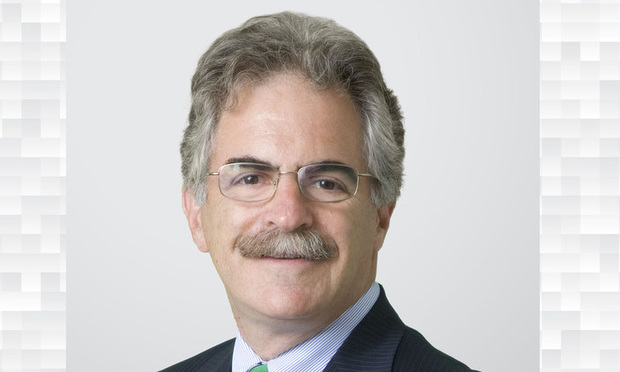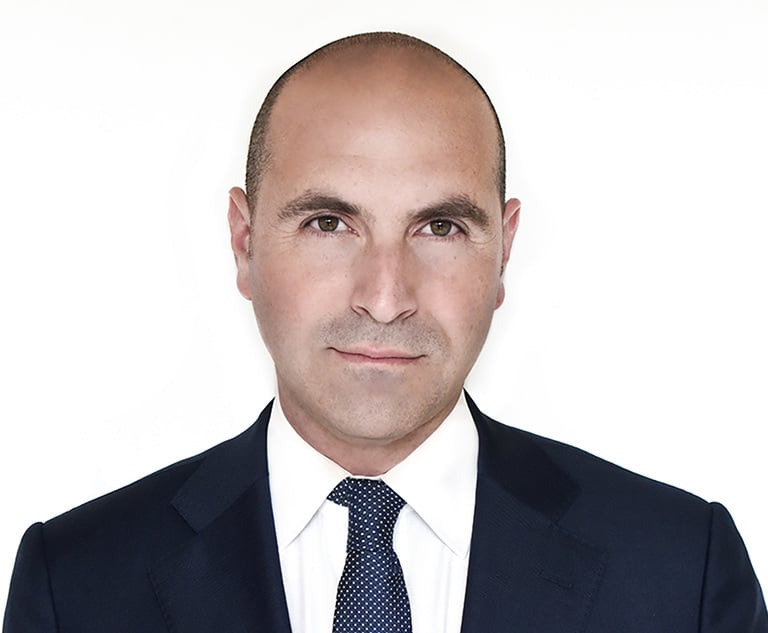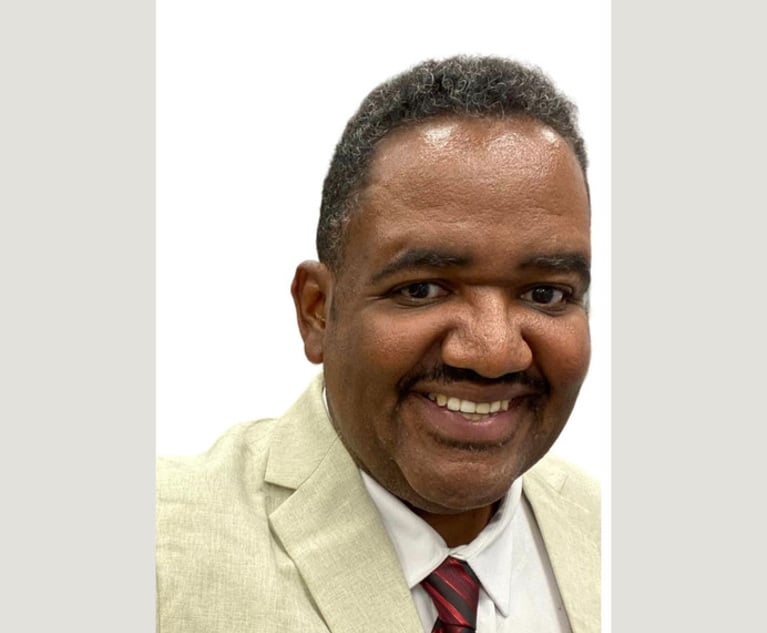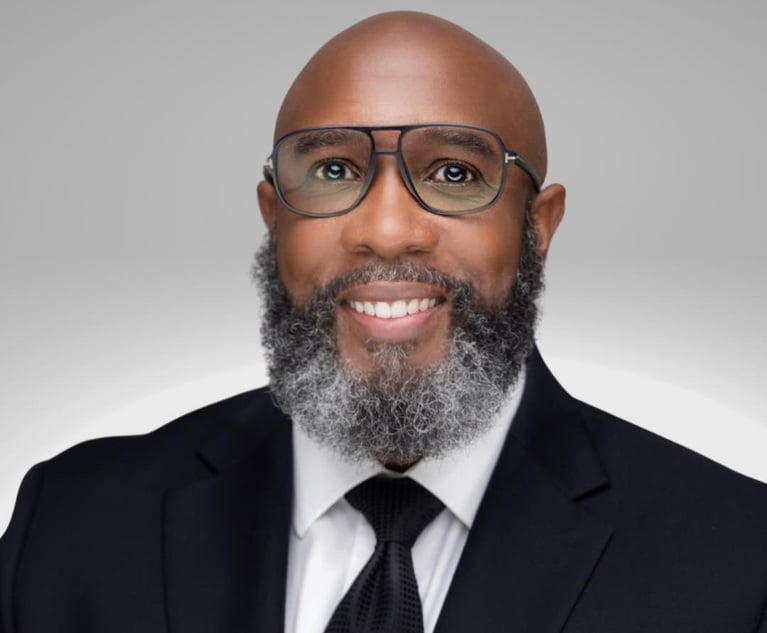Miami Litigator Dan Small Advises Outside the Box — on Uzbek Legal System Overhaul
The Holland & Knight partner guides Uzbek attorneys, prosecutors and judges on the potential for change in their justice system.
November 09, 2018 at 04:08 PM
5 minute read
 Dan Small, with Holland & Knight. Courtesy photo
Dan Small, with Holland & Knight. Courtesy photo
There's a difference between learning a legal concept like the art of cross-examination and understanding its merits and why it's used.
That's what litigator Dan Small realized on his trips to Uzbekistan.
Small traveled to the Central Asian country three times to work with Uzbek attorneys, prosecutors and judges pushing for changes to the justice system.
Working pro bono, the Holland & Knight partner went in 2013, 2017 and again in June for the Slovenia-based Regional Dialogue nongovernment organization, which aims to promote the exchange of ideas and knowledge in Central Asia.
The delegations have been small — first with two judges, the second time with another lawyer and most recently with another lawyer, a judge and a representative of the U.S. Justice and State departments.
Uzbekistan has a Byzantine-era judicial system with less emphasis on adversaries presenting a case. Instead, the judge holds the most authority, receives investigative findings and decides how to proceed, according to Small.
“The inquisitorial system's view is there's only one truth and the judge can find it and doesn't need lawyers getting in the way,” he said.
The effort to overhaul the system has been mainly led by young Uzbek attorneys, Small added.
It has gained momentum in part from the 2016 election of President Shavkat Mirziyoyev, the republic's second president. Islam Karimov held the office for 25 years after the country emerged from the shadow of the Soviet Union.
“The new president has been open to change in all aspects of their society — in political, economic and social and the judicial system,” said Small, who splits his time with Holland & Knight between Miami and Boston. “It has been a process that started slowly and accelerated. Some would say it still is moving slowly, but I disagree. I think they have made enormous strides. How do you create a whole new system? It's not easy.”
It's not just about teaching Uzbek attorneys and judges things like Miranda rights, the right to plead the equivalent of the Fifth Amendment and the nuances of cross-examination. It's about teaching them why they are done.
“One of the things we found is that we not only have to teach them what cross-examination was, but we very much had to sell the idea of cross-examination,” Small said.
Small described the time his Uzbek students were preparing for a mock trial with judges, prosecutors and attorneys assigned different roles. Before the trial, the team playing the prosecution quit, Small recalled.
“They said to me, 'We can't do this. We can't try this case. We might lose.' Prosecutors there have no sense of losing a case. Their job is to prepare a file and present it to a judge,” Small said. “If the file isn't adequate for a conviction, it's their fault and they could get fired.”
To motivate his students, he launched into his “best Vince Lombardi” inspirational speech, he said, referring to the late National Football League coach.
Then, there was the time one of Small's students asked him during dinner if they really were going to call government employees as witnesses during a mock trial.
“It takes awhile to get people to figure out how that works and whether and to what extent they want us part of their system,” Small said.
Indeed, Small emphasized his teachings weren't meant to create an Uzbek legal system that mimics the U.S. system, but to present a menu of what the legal system has to offer so they can select what works for them or perhaps tweak it.
It's fitting that Small has been imparting his wisdom since he originally wanted to be a teacher.
After graduating from Harvard College, he took graduate courses in education in Colorado, but a teaching job he had counted on back in Massachusetts didn't pan out, he said.
“I decided maybe law school combined those things I loved and also allows me to teach,” he said.
NOTABLE CASES
Small had plenty of experience to draw from when teaching his Uzbek counterparts.
He was defense attorney for two former governors, prosecuted Georgia sheriffs and accused murderers in Texas as a Justice Department attorney, and prosecuted two executives after a deadly grain elevator explosion in Galveston, Texas, in 1977, among other cases.
Small represents the sisters of Linda Carman, who in 2016 set sail with her son Nathan but was never found after the boat sank. Her son was rescued about a week later. Nathan Carman is a person of interest in the death of his grandfather, John Chakalos, who left a $44 million estate. Small is suing on behalf of Carman's aunts to block him from inheriting the estate.
“It's very much about justice for the family and not about money,” Small said. The aunts “want justice, they want some resolution, and they don't want Nathan to profit by his crimes.”
Small was part of the trial team that successfully argued there was no quid pro quo when former Virginia Gov. Bob McDonnell and his wife accepted gifts from a businessman.
“We said, 'OK, there were a bunch of gifts and maybe the governor made a mistake and shouldn't have accepted, but that wasn't illegal,” Small said.
Dan Small
Born: Boston, 1954
Children: Bailey, Schuyler and Gabrielle
Spouse: Alix DeSeife Small
Education: Harvard College, J.D., 1979, B.A., 1975
Experience: Partner, Holland & Knight, 2004-present; Partner, Duane Morris, 2003- 2008; General Counsel, InPhyNet Medical Management, 1993-1995; Assistant U.S. Attorney, U.S. Department of Justice, 1983-1989; Deputy Chief, Public Corruption Unit, U.S. Attorney's Office, 1983-1988
This content has been archived. It is available through our partners, LexisNexis® and Bloomberg Law.
To view this content, please continue to their sites.
Not a Lexis Subscriber?
Subscribe Now
Not a Bloomberg Law Subscriber?
Subscribe Now
NOT FOR REPRINT
© 2025 ALM Global, LLC, All Rights Reserved. Request academic re-use from www.copyright.com. All other uses, submit a request to [email protected]. For more information visit Asset & Logo Licensing.
You Might Like
View All
Growing Referral Network, Alternative Fees Have This Ex-Big Law’s Atty’s Bankruptcy Practice Soaring
5 minute read
Against the Odds: Voters Elect Woody Clermont to the Broward Judicial Bench
4 minute read
Miami Civil Judge Myriam Lehr to Say Goodbye to the County Court Bench
4 minute readTrending Stories
- 1The FTC’s Noncompete Rule Is Likely Dead
- 2COVID-19 Vaccine Suit Against United Airlines Hangs on Right-to-Sue Letter Date
- 3People in the News—Jan. 10, 2025—Lamb McErlane, Saxton & Stump
- 4How I Made Partner: 'Be Open With Partners About Your Strengths,' Says Ha Jin Lee of Sullivan & Cromwell
- 5Essential Labor Shifts: Navigating Noncompetes, Workplace Politics and the AI Revolution
Who Got The Work
Michael G. Bongiorno, Andrew Scott Dulberg and Elizabeth E. Driscoll from Wilmer Cutler Pickering Hale and Dorr have stepped in to represent Symbotic Inc., an A.I.-enabled technology platform that focuses on increasing supply chain efficiency, and other defendants in a pending shareholder derivative lawsuit. The case, filed Oct. 2 in Massachusetts District Court by the Brown Law Firm on behalf of Stephen Austen, accuses certain officers and directors of misleading investors in regard to Symbotic's potential for margin growth by failing to disclose that the company was not equipped to timely deploy its systems or manage expenses through project delays. The case, assigned to U.S. District Judge Nathaniel M. Gorton, is 1:24-cv-12522, Austen v. Cohen et al.
Who Got The Work
Edmund Polubinski and Marie Killmond of Davis Polk & Wardwell have entered appearances for data platform software development company MongoDB and other defendants in a pending shareholder derivative lawsuit. The action, filed Oct. 7 in New York Southern District Court by the Brown Law Firm, accuses the company's directors and/or officers of falsely expressing confidence in the company’s restructuring of its sales incentive plan and downplaying the severity of decreases in its upfront commitments. The case is 1:24-cv-07594, Roy v. Ittycheria et al.
Who Got The Work
Amy O. Bruchs and Kurt F. Ellison of Michael Best & Friedrich have entered appearances for Epic Systems Corp. in a pending employment discrimination lawsuit. The suit was filed Sept. 7 in Wisconsin Western District Court by Levine Eisberner LLC and Siri & Glimstad on behalf of a project manager who claims that he was wrongfully terminated after applying for a religious exemption to the defendant's COVID-19 vaccine mandate. The case, assigned to U.S. Magistrate Judge Anita Marie Boor, is 3:24-cv-00630, Secker, Nathan v. Epic Systems Corporation.
Who Got The Work
David X. Sullivan, Thomas J. Finn and Gregory A. Hall from McCarter & English have entered appearances for Sunrun Installation Services in a pending civil rights lawsuit. The complaint was filed Sept. 4 in Connecticut District Court by attorney Robert M. Berke on behalf of former employee George Edward Steins, who was arrested and charged with employing an unregistered home improvement salesperson. The complaint alleges that had Sunrun informed the Connecticut Department of Consumer Protection that the plaintiff's employment had ended in 2017 and that he no longer held Sunrun's home improvement contractor license, he would not have been hit with charges, which were dismissed in May 2024. The case, assigned to U.S. District Judge Jeffrey A. Meyer, is 3:24-cv-01423, Steins v. Sunrun, Inc. et al.
Who Got The Work
Greenberg Traurig shareholder Joshua L. Raskin has entered an appearance for boohoo.com UK Ltd. in a pending patent infringement lawsuit. The suit, filed Sept. 3 in Texas Eastern District Court by Rozier Hardt McDonough on behalf of Alto Dynamics, asserts five patents related to an online shopping platform. The case, assigned to U.S. District Judge Rodney Gilstrap, is 2:24-cv-00719, Alto Dynamics, LLC v. boohoo.com UK Limited.
Featured Firms
Law Offices of Gary Martin Hays & Associates, P.C.
(470) 294-1674
Law Offices of Mark E. Salomone
(857) 444-6468
Smith & Hassler
(713) 739-1250







